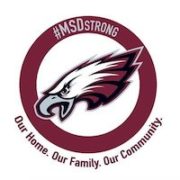But what if they don’t like me…
As we get older, it seems like when we look back, we have made friends every step of the way. Whether it be in school, sports, camp, or other kids around the neighborhood, we as people tend to make connections even without realizing it, but for those with neurodivergent traits, making friends can be difficult. Between the anxiety of not knowing if they will like what you like and having to talk and open-up to a stranger, making friends can be difficult for many. Yet, if they don’t, their lives can be filled with isolation, anxiety, depression, and so much more. Without friends, children, teens, and young adults may find going to school, events, and even just daily life to be difficult to manage. Friends help us feel comfortable in situations we may not be used to, and they are there to talk to us and help us get through things, but if we cannot make, nurture and maintain these friendships, life can quickly become lonely.
Without the effective social skills, making friends can seem impossible. Knowing what they like and dislike, how to talk to certain people in specific situations, reading body language, emotional regulation, listening, and so much more are ways we make and keep friends. These skills help us understand what our friends are thinking so we can be there for them and vice versa, which can make school and general life a much better experience. Friends are there to experience life with us and to help us through tough times, which is why having them is so important, yet neurodivergent individuals may find it more difficult to know when to use these skills than their neurotypical peers, but the Support for Students Growth Center can give them the tools they need to do so.
At SSGC, we provide the social, behavioral, educational, emotional, and executive functioning skills children, teens, young adults, and their families need for a happy and successful life in and out of school settings. Our team of professionals offers individualized and family coaching/counseling and social skills groups to help teach skills such as how to make friends to ensure parents do not have to worry that their kids will be unable to make and maintain a functioning independent life on their own. So, if your child is struggling with skills like the ones listed above and much more, the SSGC is equipped with the tools to help.
Click here and call now to schedule your FREE 20-minute individualized screening- $150 value
Dr. Eric J. Nach, Ph.D., M.Ed., A.S.D.C., is a Developmental and Behavioral Specialist who specializes in Autism, ADHD and related disorders. Dr. Nach is the founder of the Support for Students Growth Center and College Life Skills Program where he and his team of professional’s help develop the Emotional Maturity, Executive Functioning, Life Skill and Social Abilities of children, teens, young adults and college students and those high school students preparing for college.


